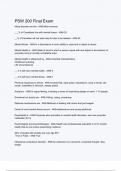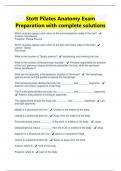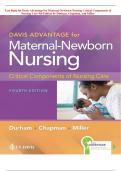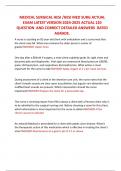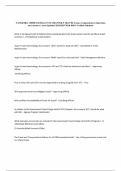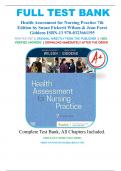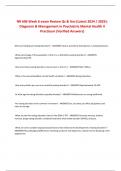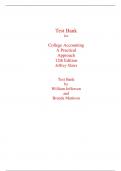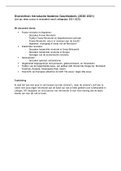Exam (elaborations)
PSW 200 Final Exam Questions with 100% Actual correct answers | verified | latest update | Graded A+ | Already Passed | Complete Solution
- Module
- NACC - PSW
- Institution
- NACC - PSW
PSW 200 Final Exam Questions with 100% Actual correct answers | verified | latest update | Graded A+ | Already Passed | Complete Solution
[Show more]
